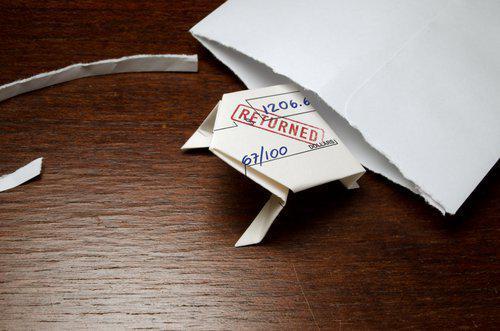Fraud, Forgery, and Bad Checks in the State of Wisconsin
 Fraud, forgery, and criminal charges resulting from writing a bad check can seem rather similar. However, there are some significant differences between these types of offenses; the most notable of which rests in the defendant’s intentions. If you are facing criminal charges for fraud, forgery, or charges related to writing a bad check, know your rights and how you may best take action to avoid maximum penalties.
Fraud, forgery, and criminal charges resulting from writing a bad check can seem rather similar. However, there are some significant differences between these types of offenses; the most notable of which rests in the defendant’s intentions. If you are facing criminal charges for fraud, forgery, or charges related to writing a bad check, know your rights and how you may best take action to avoid maximum penalties.
Forgery
Forgery is defrauding another through the alteration or writing of an object so that it appears it was written or made by another individual. For example, a woman recently had a warrant issued for her arrest after allegedly altering a check written to her by a resident at the centerat which she works. Originally written for $11, she reportedly changed it to read $11,000 and then deposited the check into her bank. Possession or use of an altered document may also constitute forgery charges, even if the person in possession of the document was not the one who altered it.
Penalties for forgery in the state of Wisconsin depend specifically on the types of documents altered. In most cases, it is a Class H felony, which is punishable by a fine of up to $10,000 and six years in prison. Fraudulent alteration of documents like membership cards, transportation tickets, or marking a product with the intent to mislead another into believing it was made or distributed by a company is a Class A misdemeanor, which is punishable by up to nine months in jail and a fine of up to $10,000.
Fraud
Fraud, which is notably different than forgery, is the intentional misrepresentation of the truth. This can cover a wide array of crimes, including theft, blackmail, alteration of corporate data or accounts, intentional overvaluing of assets to secure a loan or other property, and even the writing of bad checks. The penalties are largely dependent upon the type of fraud, as well as the value of the transaction or attempted transaction.
When speaking specifically about bad checks, resulting charges are directly related to the value of a single check, or the total of any and all checks written over a 90-day period. If, however, the check (or combined checks) exceed $2,500, it becomes a Class I felony, which is punishable by up to 3.5 years in prison and $10,000 in fines.
Charged with Fraud or Forgery? Seek Assistance from a Skilled Criminal Defense Attorney
Often, crimes of fraud or forgery are committed when financial stressors are high. Some may even be completely unintentional (such as writing a check only to have it bounce after an unexpected transaction). Regardless of your intent, circumstances, or charges, it is important to have the assistance of a skilled and experienced criminal defense attorney to ensure your rights are protected.
Gimbel, Reilly, Guerin & Brown, LLP has been helping individuals accused of white collar crimes, such as fraud and forgery, since 1968. Knowledgeable and understanding, we thoroughly investigate the facts of your case as early and as quickly as possible to help minimize the potential effects of your charges. And, when necessary, we advocate to pursue the best possible outcome for your situation. To find out more, schedule your consultation with our Milwaukee area criminal defense attorneys. Call our offices at 414-271-1440 today.
Sources:
http://lcsun-news.com/story//local/2016/02/18/crime-stoppers-offers-reward-forgery-case/80567864/
http://franklinwi.gov/defaultfilepile/user/dmalik/milwaukeecountywi.pdf
https://docs.legis.wisconsin.gov/statutes/statutes/943/III/38
https://docs.legis.wisconsin.gov/statutes/statutes/943/III/24







